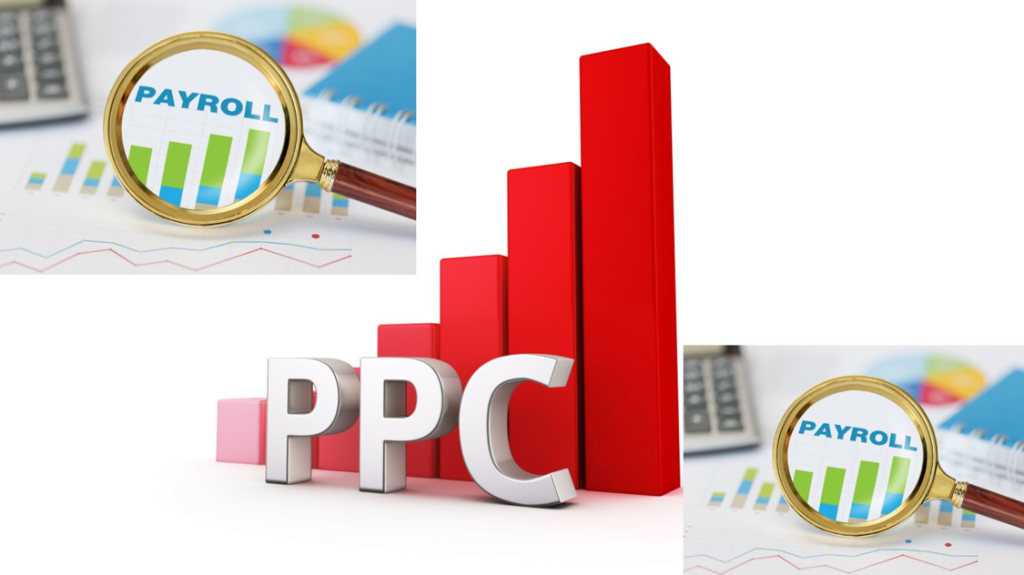Introduction
In the world of finance and human resources, payroll management is a critical function that ensures employees are compensated accurately and on time. One of the emerging trends in payroll management is the use of PPC (Pay-Per-Click) payroll systems. This article delves into what PPC payroll is, its benefits, challenges, and best practices for implementation.
What is PPC Payroll?
PPC payroll refers to a payroll system that utilizes Pay-Per-Click advertising strategies to manage and optimize payroll processes. Unlike traditional payroll systems that rely on fixed monthly fees or subscription models, PPC payroll integrates with digital marketing tools to streamline payroll operations based on performance metrics and advertising costs.
Key Features of PPC Payroll Systems
- Performance-Based Billing: PPC payroll systems often use a performance-based billing model, where costs are tied to specific actions or results.
- Integration with Marketing Tools: These systems are designed to integrate with various digital marketing platforms, making it easier to manage payroll for employees working in marketing roles.
- Real-Time Data Analytics: PPC payroll systems provide real-time data analytics to help businesses make informed decisions regarding their payroll expenses.
Benefits of PPC Payroll
1. Cost Efficiency
One of the primary benefits of PPC payroll systems is cost efficiency. By leveraging performance-based billing, companies can optimize their payroll expenses and pay only for actual performance outcomes. This can lead to significant cost savings, especially for businesses with fluctuating payroll needs.
2. Enhanced Flexibility
PPC payroll systems offer enhanced flexibility in managing payroll processes. Businesses can adjust their payroll expenditures based on real-time performance data, allowing for more accurate budgeting and financial planning.
3. Improved Accuracy
With integrated digital marketing tools, PPC payroll systems can provide more accurate payroll calculations. The real-time data analytics ensure that payroll expenses are closely aligned with marketing performance, reducing the risk of errors.
4. Better Financial Insights
The integration of PPC payroll systems with marketing platforms provides valuable financial insights. Businesses can track the performance of their payroll expenditures in relation to their marketing campaigns, enabling more strategic decision-making.
Challenges of PPC Payroll
1. Complexity in Integration
Integrating PPC payroll systems with existing marketing tools and payroll platforms can be complex. It requires careful planning and technical expertise to ensure seamless operation.
2. Data Security Concerns
Handling payroll data in conjunction with marketing performance data raises concerns about data security. Ensuring that sensitive payroll information is protected from unauthorized access is crucial.
3. Learning Curve
There may be a learning curve associated with adopting a PPC payroll system, especially for businesses that are new to performance-based billing models. Training and support are essential for a smooth transition.
Best Practices for Implementing PPC Payroll
1. Choose the Right System
Selecting a PPC payroll system that aligns with your business needs is critical. Evaluate different options and choose a system that integrates well with your existing tools and provides the features you need.
2. Ensure Data Security
Implement robust security measures to protect sensitive payroll data. This includes encryption, access controls, and regular audits to ensure data integrity.
3. Provide Adequate Training
Invest in training for your HR and finance teams to ensure they are proficient in using the PPC payroll system. Proper training will help minimize errors and improve overall efficiency.
4. Monitor and Optimize
Regularly monitor the performance of your PPC payroll system and make necessary adjustments based on data analytics. Continuous optimization will help you achieve the best results and maximize cost savings.
Conclusion
PPC payroll systems offer a modern approach to managing payroll, leveraging performance-based billing and real-time data analytics. While there are challenges associated with their implementation, the benefits of cost efficiency, flexibility, and improved accuracy make them an attractive option for many businesses. By following best practices and carefully selecting the right system, companies can optimize their payroll processes and gain valuable financial insights.
FAQs
What is the main advantage of a PPC payroll system?
The main advantage of a PPC payroll system is cost efficiency, as it allows businesses to pay based on performance outcomes rather than fixed monthly fees.
How does a PPC payroll system integrate with marketing tools?
PPC payroll systems integrate with digital marketing platforms to align payroll expenses with marketing performance, providing real-time data analytics.
Are there any security concerns with PPC payroll systems?
Yes, handling payroll data alongside marketing performance data raises data security concerns. It is essential to implement robust security measures to protect sensitive information.
What should businesses consider when choosing a PPC payroll system?
Businesses should consider factors such as system integration, data security, and training requirements when choosing a PPC payroll system to ensure it meets their needs effectively.

1 Comment
Your article helped me a lot, is there any more related content? Thanks! https://accounts.binance.com/es/register?ref=T7KCZASX